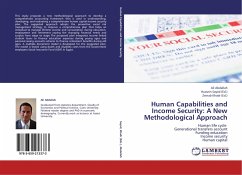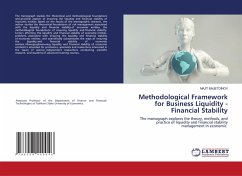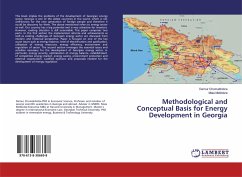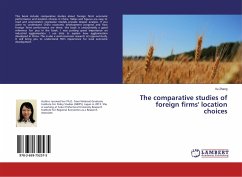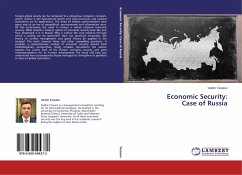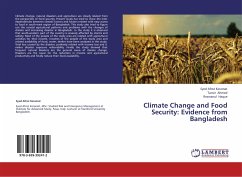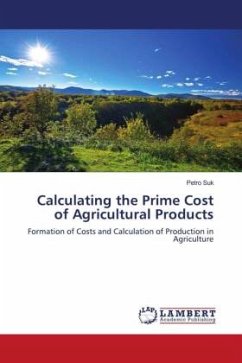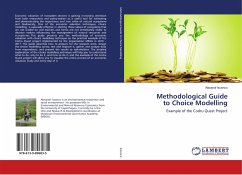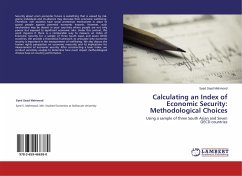
Calculating an Index of Economic Security: Methodological Choices
Using a sample of three South Asian and Seven OECD countries
Versandkostenfrei!
Versandfertig in 6-10 Tagen
22,99 €
inkl. MwSt.

PAYBACK Punkte
11 °P sammeln!
Security about one's economic future is something that is valued by risk-averse individuals and its absence may decrease their economic well-being. Therefore, rich societies have social protection mechanisms in place to guard people against potential economic hazards. However, such mechanisms may be absent in poor countries where people are not only poorer but exposed to significant economic risks. Under this context, this work inquires if there is a comparable way to measure an Index of Economic Security for a sample of three South Asian and seven OECD countries. We provide a theoretical fram...
Security about one's economic future is something that is valued by risk-averse individuals and its absence may decrease their economic well-being. Therefore, rich societies have social protection mechanisms in place to guard people against potential economic hazards. However, such mechanisms may be absent in poor countries where people are not only poorer but exposed to significant economic risks. Under this context, this work inquires if there is a comparable way to measure an Index of Economic Security for a sample of three South Asian and seven OECD countries. We provide a theoretical framework to articulate why economic security is important in the measurement of well-being. We also discuss the human rights perspective on economic insecurity and its implications for measurement of economic security. After constructing a basic index, we conduct sensitivity analysis to determine how much impact methodological choices have on country performance.



